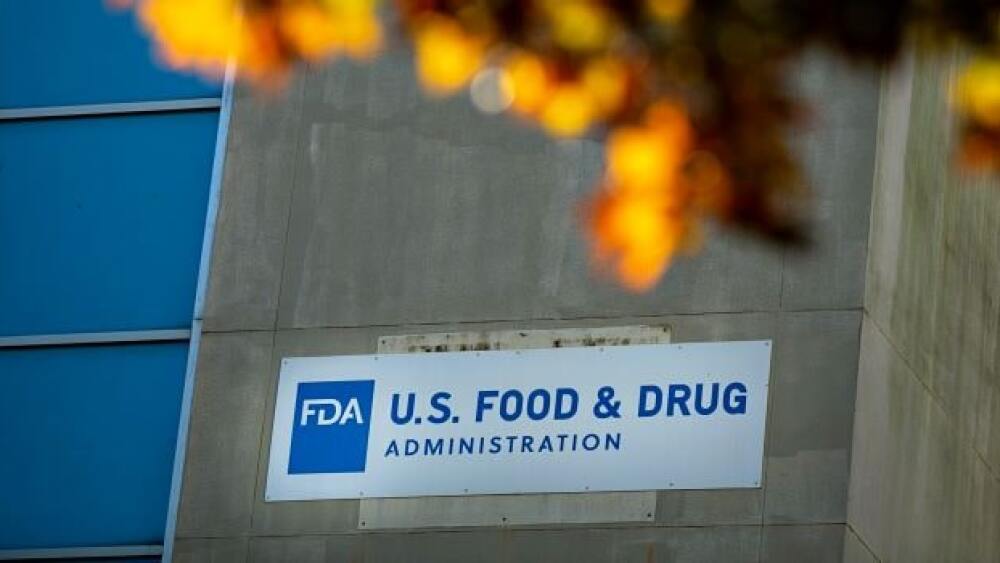A cancer drug co-developed by Coherus BioSciences and Junshi Biosciences, toripalimab, is getting another opportunity before the U.S. Food and Drug Administration.
Courtesy of Jason Armond/Los Angeles Times via Getty Images
A cancer drug co-developed by Coherus BioSciences and Junshi Biosciences is getting another opportunity before the U.S. Food and Drug Administration.
Two months after the regulatory agency issued a Complete Response Letter for toripalimab, both as a monotherapy and in combination with gemcitabine and cisplatin, the FDA accepted a Biologics License Application for review and has set a Prescription Drug User Fee Act action date for Dec. 3.
Toripalimab, an anti-PD-1 monoclonal antibody, has been developed as a treatment for recurrent or metastatic nasopharyngeal carcinoma. In the first-line space, toripalimab is paired with gemcitabine and cisplatin, and as a second-line treatment, toripalimab is a stand-alone therapy. The combination of toripalimab, gemcitabine and cisplatin previously received Breakthrough Therapy designation from the FDA, and toripalimab has received Orphan Drug designation.
The toripalimab BLA is supported by the results from JUPITER-02, a randomized, Phase III clinical trial, as well as the Phase II POLARIS-02 clinical study.
In its re-acceptance of the BLA, the FDA said the review timeline will be six months and that onsite inspections in China will be required. An inability to travel to China during the height of the COVID-19 resurgence in that country in order to observe manufacturing facilities was a key issue for the FDA when it issued its CRL earlier this year. Now, it appears that such travel options are back on the table, allowing the review process to move forward.
Dr. Theresa LaVallee, chief development officer of Coherus, said the approval of toripalimab will address a critical unmet need for patients with recurrent or metastatic nasopharyngeal carcinoma. Currently, there are no approved immunotherapies for this indication, LaVallee said. Following the CRL, LaVallee noted that Coherus and Junshi rapidly completed the quality process changes requested by the FDA to resubmit the BLA.
“Although the COVID-19 pandemic has created tremendous challenges for everyone, our dedication to bring better treatment options to patients around the world remains steadfast,” Dr. Patricia Keegan, chief medical officer of Junshi Biosciences, said in a statement. “Through our concerted efforts with our partner, Coherus, we have made continual progress towards obtaining toripalimab’s first marketing authorization outside of China. Over the next several months, we will work closely with the FDA to facilitate the review of this novel drug.”
If approved by the FDA, Coherus plans to launch toripalimab in the United States in the first quarter of 2023. Coherus said its U.S.-based strategy will include assessing the checkpoint inhibitor in combination with other cancer drugs and immunotherapies for other indications of cancer. It will do so through the forging of co-development agreements, the company said.
Coherus Chief Executive Officer Denny Lanfear said the toripalimab resubmission is one of the key milestones the company is focused on over the next 12 months. In addition to potential FDA approval of toripalimab, the company is also eying Aug. 2, when the FDA is expected to decide on Cimerli, Coherus’ biosimilar for Lucentis. And in 2023, Coherus will begin to market Yusimry, its biosimilar for AbbVie’s Humira, which loses patent protection in the U.S. next year. Yusimry was approved by the FDA in December 2021.
“The toripalimab December 2022 PDUFA date and the projected toripalimab launch will formally mark our entry into immuno-oncology, where Coherus will be one of just a handful of companies with a proprietary PD-1 as a foundation stone to build its oncology franchise upon,” Lanfear said.





